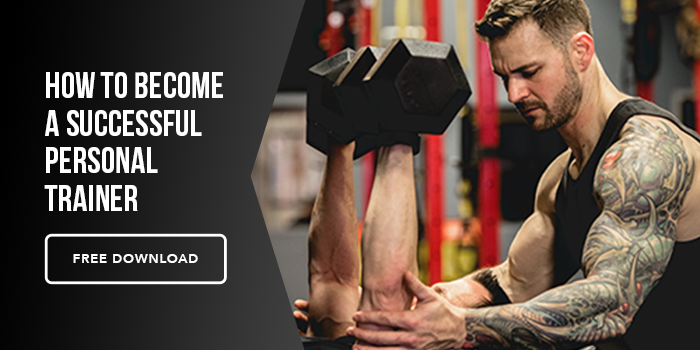There are many of us that take on a fitness journey and make amazing transformations. From those transformations, we realize our whole attitude changed for the better. It is usually from servicing ourselves first that we realize we might want to potentially take this newfound skill and help others achieve that same change. While I do think that personal training is not for everyone, if you do find yourself wanting to pursue it, it may seem overwhelming as to what steps to take to become a trainer.
For today’s article, I’d like to go over the first 3 steps you should be taking in order to become a trainer.
1. Find a Certification that's right for you
Nowadays, there are so many certifications to choose from. From ACE, to NSCA, to NASM, it’s hard to know which one is the best to go with. The real question is what is the reasoning you want to be a trainer in the first place? Some certifications require more prerequisites than others, and some require a college degree. There’s no point in going for a strength and conditioning certification with months of preparation if all you want to do is work at a chain gym. Here are some rough guidelines.
ACE - ACE Certification is one of the easiest certs to get. It doesn’t require a college degree, and it’s not too expensive. I recommend this one if you are tight on money, and just want to get your feet wet working at a box gym (although check to see what their requirements are, as some gyms require specific certifications), or just want to be confident training some people privately on the side.
NSCA-CSCS (Certified Strength and Conditioning Specialist) - NSCA has regular personal training certs as well, but this one is geared towards training collegiate and professional athletes. If your goal is to work with athletes at those levels, pretty much all of them are going to require you to have this cert. Keep in mind, in order to obtain this, you need a bachelor's degree (doesn’t have to be in Kinesiology).
NASM - NASM seems to be the most popular certification in most chain gyms. It’s a very reputable brand and the one I’ve found most gyms ask for when applying. They also have additional certifications geared towards elderly populations, chronic injuries, etc.
NCI or Precision Nutrition Certification - If you’re looking to get more into nutrition coaching, or want to further round out your skills as a trainer after getting your personal training cert, these are two highly recommended nutrition focused certifications.
2. Be Prepared for the Exam
Some exams are easier than others. Ultimately that’s subjective for me to say, because it depends on how much knowledge you have going into the test. My background was in Kinesiology with a specialization in Exercise Science, and I had been reading articles back when T-Nation (this was pre Mind Pump), and Dr. John Berardi and Layne Norton were the only ones blogging. I had unknowingly been studying for my eventual test without realizing it. So if you’re already listening to Mind Pump, and reading articles great - you’re ahead of the game. HOWEVER, most training tests focus on the biomechanics and science aspects of training, so you’re going to want to make sure you read their supplemental textbooks and practice their exams. I personally loved the practice exams, because I found they worded questions to where multiple answers could fit. What it came down to was what fit “the most”. Tricky and annoying I know, but that’s just the way it is. Also make sure you have prerequisites like a CPR certification.
3. Find the Right Gym
Fantastic, you’ve passed the exam! Now what? Well, if you’ve been following my advice above, you’ve already decided what kind of gym you want to work at, and what kind of training you want to do.
Big Box Gyms - great if you just want to train general demographic people, and get an overall set of skills towards clients of all shapes, injuries and sizes. Also good if you want to learn how a gym operates from the ground level, if your hope is to one way have your own private training operation.
Colleges, Pro Athletes - If you’re trying to go the collegiate route, your best bet is going to be applying to as many internships as you can at different colleges. The tricky part with this though is most of them do not pay, so you might need a second job to hold you over. But the lessons are so priceless I can’t even begin to describe. I’ve learned more from 6 month internships at Division I colleges, and well known coaches, then in my entire 10+ years of being a trainer combined. It may sound not worth it because of the lack of pay, but if you TRULY want to work with athletes this is a must. The experience is so rare, and the strength community in sports is so small, a LOT of these internships end up in full time jobs at those colleges, or working for those teams. If you put yourself out there, and know how to hustle this can be a great opportunity.






